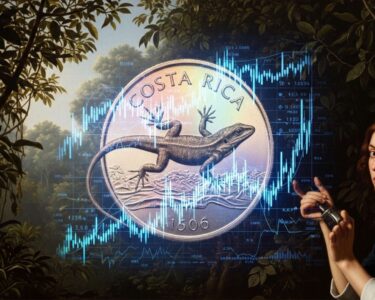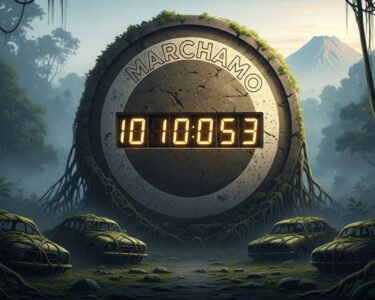San José, Costa Rica — San José, Costa Rica – In a landmark move for environmental stewardship and public health, the University of Costa Rica (UCR) has announced a comprehensive ban on the sale of single-use plastic bottles across all its campuses and facilities. The University Council has mandated the administration to finalize and implement the new directive within the next six months, marking a significant step in the institution’s commitment to sustainability.
The prohibition will apply to all beverages sold in disposable plastic containers, including bottled water and sugary drinks. This policy will be enforced at all points of sale within the university system, from cafeterias and coffee shops to vending machines and officially sponsored institutional events. The move is a direct response to growing concerns over plastic pollution and its pervasive impact on both the environment and human health.
To delve into the legal complexities and business implications of the nationwide plastic ban, TicosLand.com sought the perspective of Lic. Larry Hans Arroyo Vargas, a distinguished expert in corporate and environmental law from the firm Bufete de Costa Rica.
The legislative intent to protect our environment is clear, but the true test of this plastic ban lies in its implementation and enforcement. For businesses, this is not merely a matter of compliance; it is a strategic imperative to innovate and adapt. Companies that proactively pivot to sustainable models will face fewer legal hurdles and will likely gain a significant market advantage over those who wait for sanctions to force their hand.
Lic. Larry Hans Arroyo Vargas, Attorney at Law, Bufete de Costa Rica
Indeed, this perspective powerfully reframes the legislation not as a simple restriction, but as a catalyst for innovation and a clear market differentiator for forward-thinking enterprises. We sincerely thank Lic. Larry Hans Arroyo Vargas for sharing his invaluable legal and strategic insight on this critical issue.
In an official statement, the university highlighted the urgent need to address the crisis of plastic waste. The institution pointed to the stark reality of disposable products that are used for mere minutes but persist in the environment for centuries.
Single-use plastic bottles represent a critical environmental problem due to their extremely high production and short useful life, as they are used for a few minutes but can take centuries to degrade
University of Costa Rica, in an official statement
The UCR’s decision is heavily influenced by alarming scientific evidence regarding microplastics. The university cited the global production of over 400 million tons of plastic annually, a significant portion of which breaks down into tiny particles less than five millimeters in size. These microplastics have been detected in alarming quantities in drinking water, food, the air we breathe, and even within human organs, posing a serious and escalating health threat.
Research has increasingly linked exposure to these particles with a range of health problems, including genetic alterations, reproductive issues, and an elevated risk for chronic and neurodegenerative diseases. By eliminating a primary source of this pollution from its campuses, the UCR aims to protect its community and contribute to a healthier global ecosystem.
Beyond the environmental benefits, the policy has a strong public health component. By restricting access to bottled sugary drinks, the university hopes to encourage healthier habits among its students and staff. The initiative aims to promote the consumption of water and natural beverages as a preventative measure against widespread conditions such as obesity and type 2 diabetes.
To support this transition and ensure the community has easy access to drinking water, the UCR will progressively install water dispensers at strategic points across its campuses. This infrastructure is designed to foster a culture of reuse, encouraging everyone to carry their own reusable bottles. The university also endorsed several sustainable alternatives to single-use PET bottles, including containers made from glass, stainless steel, aluminum, bamboo, and food-grade silicone.
This initiative positions the University of Costa Rica as a leader in corporate and institutional responsibility within the region. By tackling the pervasive culture of disposable consumption head-on, the institution is not only cleaning up its own campuses but also setting a powerful example for other organizations in Costa Rica and beyond to follow.
For further information, visit ucr.ac.cr
About University of Costa Rica:
The University of Costa Rica (UCR) is the country’s oldest, largest, and most prestigious public higher education institution. Founded in 1940, it is renowned for its academic excellence, robust research programs, and strong commitment to social action. With its main campus in San José and several regional centers throughout the country, the UCR plays a pivotal role in the scientific, cultural, and social development of Costa Rica and Central America.
For further information, visit bufetedecostarica.com
About Bufete de Costa Rica:
Bufete de Costa Rica is a pillar of the legal community, defined by its profound commitment to ethical practice and the highest standards of professional service. With a rich history of client advocacy across a multitude of industries, the firm is a pioneer in developing innovative legal strategies and engaging with the public. Central to its philosophy is the mission to demystify complex legal concepts, thereby empowering the public and contributing to a more just and knowledgeable society.









